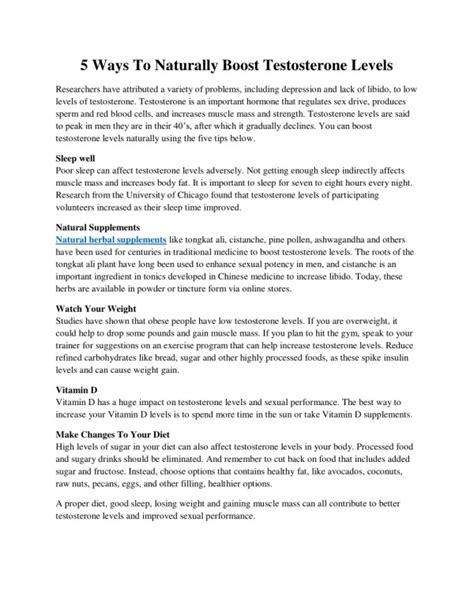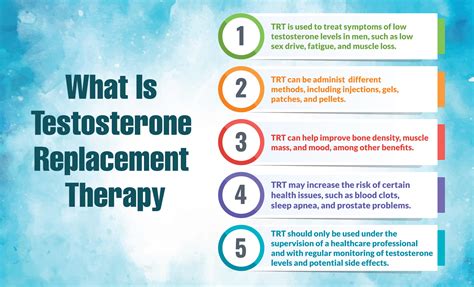How to boost low testosterone naturally for sustained male vitality and performance?

Understanding Low Testosterone and Its Impact
Testosterone, the primary male sex hormone, plays a pivotal role in a man’s health, influencing everything from muscle mass and bone density to mood, energy levels, and sexual function. As men age, it’s natural for testosterone levels to gradually decline. However, lifestyle factors can accelerate this drop, leading to symptoms like fatigue, decreased libido, weight gain, mood swings, and reduced physical performance. The good news is that many natural strategies can help optimize your body’s testosterone production, fostering sustained vitality and peak performance.

Fuel Your Body: The Power of Nutrition
Diet is a cornerstone of hormonal health. Eating a balanced diet rich in specific nutrients can significantly impact testosterone levels. Focus on:
- Healthy Fats: Cholesterol is a precursor to testosterone. Incorporate monounsaturated and polyunsaturated fats from sources like avocados, nuts, seeds, olive oil, and fatty fish (salmon, mackerel).
- Protein: Adequate protein intake is crucial for muscle building and overall hormonal balance. Lean meats, poultry, eggs, and legumes are excellent choices.
- Complex Carbohydrates: Provide sustained energy and prevent cortisol spikes that can suppress testosterone. Opt for whole grains, fruits, and vegetables.
- Zinc: This mineral is vital for testosterone production. Oysters are a potent source, as are beef, pumpkin seeds, and spinach.
- Vitamin D: Often considered a pro-hormone, Vitamin D is directly linked to testosterone levels. Sunlight exposure is the best source, but supplements can be beneficial.
- Magnesium: Contributes to free (bioavailable) testosterone levels. Found in dark leafy greens, nuts, and seeds.
Exercise Smart: Boosting T Through Activity
Not all exercise is created equal when it comes to testosterone. High-intensity activities, particularly strength training, are most effective:
- Strength Training: Lifting weights or performing resistance exercises stimulates testosterone release. Focus on compound movements like squats, deadlifts, bench presses, and rows, which engage multiple large muscle groups.
- High-Intensity Interval Training (HIIT): Short bursts of intense exercise followed by brief recovery periods can also effectively boost testosterone.
- Avoid Overtraining: While exercise is beneficial, excessive or chronic endurance training without adequate recovery can actually lower testosterone levels.

Prioritize Rest: The Critical Role of Sleep
Sleep is a powerful regulator of hormones, including testosterone. Studies show that insufficient sleep can significantly reduce testosterone levels. Aim for 7-9 hours of high-quality sleep per night. Establish a consistent sleep schedule, create a dark and cool sleeping environment, and limit screen time before bed to optimize your body’s natural restorative processes.

Manage Stress: Taming the Cortisol Beast
Chronic stress leads to elevated levels of cortisol, often called the ‘stress hormone.’ Cortisol and testosterone have an inverse relationship: when one goes up, the other tends to go down. Effective stress management techniques are therefore crucial:
- Mindfulness and Meditation: Regular practice can significantly reduce stress and cortisol levels.
- Yoga and Deep Breathing: Promote relaxation and mental calm.
- Hobbies and Social Connection: Engage in activities you enjoy and maintain strong social bonds to mitigate stress.
Consider Lifestyle Adjustments and Natural Supplements
Beyond the core pillars of diet, exercise, and sleep, several other factors can influence testosterone:
- Limit Alcohol Intake: Excessive alcohol consumption can negatively impact testosterone production.
- Maintain a Healthy Weight: Obesity, especially abdominal fat, is linked to lower testosterone.
- Minimize Exposure to Endocrine Disruptors: Certain chemicals found in plastics, pesticides, and cosmetics can interfere with hormone function.
- Herbal Supplements (with caution): Some natural compounds like Ashwagandha, Fenugreek, and D-Aspartic Acid have shown promise in certain studies for boosting testosterone, but always consult a healthcare professional before starting any new supplement regime.

Conclusion: A Holistic Path to Vitality
Boosting low testosterone naturally is not about a single magic bullet, but rather a holistic approach to health and wellness. By consistently implementing strategic dietary choices, engaging in appropriate exercise, prioritizing restorative sleep, and effectively managing stress, you can significantly optimize your body’s natural testosterone production. This integrated approach can lead to enhanced male vitality, improved performance, and an overall better quality of life. Always remember to consult with a doctor or an endocrinologist if you suspect chronically low testosterone, as they can provide a proper diagnosis and personalized treatment plan.









